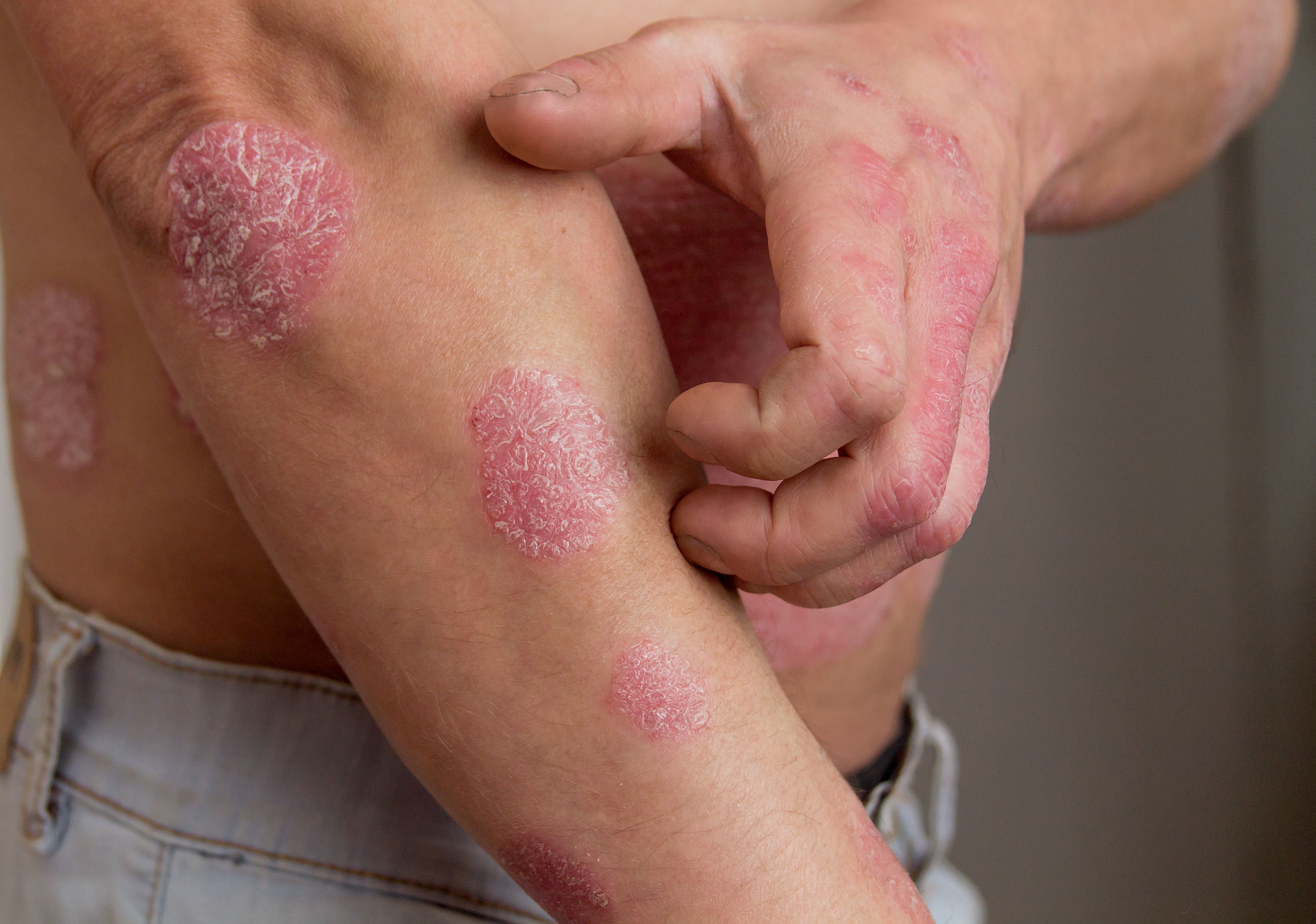- Case-Based Roundtable
- General Dermatology
- Eczema
- Chronic Hand Eczema
- Alopecia
- Aesthetics
- Vitiligo
- COVID-19
- Actinic Keratosis
- Precision Medicine and Biologics
- Rare Disease
- Wound Care
- Rosacea
- Psoriasis
- Psoriatic Arthritis
- Atopic Dermatitis
- Melasma
- NP and PA
- Skin Cancer
- Hidradenitis Suppurativa
- Drug Watch
- Pigmentary Disorders
- Acne
- Pediatric Dermatology
- Practice Management
- Prurigo Nodularis
- Buy-and-Bill
News
Article
Exploring Effectiveness of Weekend Cyclosporine Treatment as Maintenance Therapy in Psoriasis
Author(s):
Weekend treatment with cyclosporine may be beneficial for patients with moderate to severe psoriasis, according to a new study.
The use of weekend cyclosporine treatment (WCT) was found to be effective and safe as a maintenance therapy for the prevention of exacerbations in patents with moderate to severe chronic plaque psoriasis who tend to have frequent relapses.
This retrospective cohort study is published in the Indian Journal of Dermatology, Venereology and Leprology.1
“Exacerbations in psoriasis after stopping systemic therapies is a major challenge which may require repeated cycles of systemic agents in severe disease,” wrote the researchers of the study. “There are limited systematic studies in published literature evaluating systemic maintenance therapies in psoriasis to prevent exacerbations.”
Cyclosporine is prescribed by dermatologists to help a patient gain control of their severe psoriasis symptoms before being switched to another psoriasis treatment. However, if no other treatment can control the psoriasis, a patient may continue taking cyclosporine for a year or longer.2
The study included clinical and demographic records, including severity scores, treatment plans, adverse effects (AEs), and investigations of patients at a single psoriasis clinic. A total of 6715 clinical records of patients were screened between January 2014 and December 2022. Of these patients, 673 were aged 18 years or older, had an overall disease duration of at least 2 years, were treated with a daily oral cyclosporine (CYC) dose of 3 to 5mg/kg, and had a history of 3 or more exacerbations in the previous year. Additionally, 321 of these patients achieved a Psoriasis Severity Index (PASI) 90 score on daily CYC.
After exclusion for the use of other systemic agent or maintenance therapy, no follow-up, or non-uniformity during maintenance phase, 22 patients were administered WCT (group A) and compared with the same number of matched patients not on WCT or any systemic maintenance therapy (group B), according to age and gender.
Four (18.2%) patients in group A had significantly lower psoriasis exacerbations compared with 21 (95.5%) patients in group B (P =.00). Patients in group A also had a significantly lower number of overall exacerbations (mean [SD], 0.23 [0.53] vs 2.95 [1.43]; P = .00) compared with patients in group B. Additionally, 4 (9.1%) patients in group A experienced AEs (acneiform eruptions, mild gingival hyperplasia, and myalgia), while 3 AEs were experienced in group B (P = 1.00).
However, the researchers acknowledged some limitations to the study, including being retrospective in design, and that the duration of CYC treatment was not uniform and based on achieved PASI 90.
Despite these limitations, the researchers believe the study supports the use of WCT as an efficacious and safe systemic modality treatment for patients with psoriasis.
“This is the first study in which the efficacy of WCT was evaluated in the specific subset of psoriasis patients with a history of frequent exacerbations in the past,” wrote the researchers. “The use of WCT as maintenance therapy in these patients is justified to prevent exacerbations and improve the quality of life.”
References
- Dogra S, Kumar S, Narang T, Mehta H, et al. Efficacy and safety of weekend cyclosporine treatment as maintenance therapy for preventing frequent disease exacerbations in moderate to severe chronic plaque psoriasis patients: a retrospective cohort study. Indian J Dermatol Venereol Leprol. Published online May 25, 2024. doi:10.25259/IJDVL_1089_2023
- Psoriasis treatment: cyclosporine. American Academy of Dermatology. Accessed June 7, 2024. https://www.aad.org/public/diseases/psoriasis/treatment/medications/cyclosporine
[This article was originally published by our sister publication, American Journal of Managed Care.]






